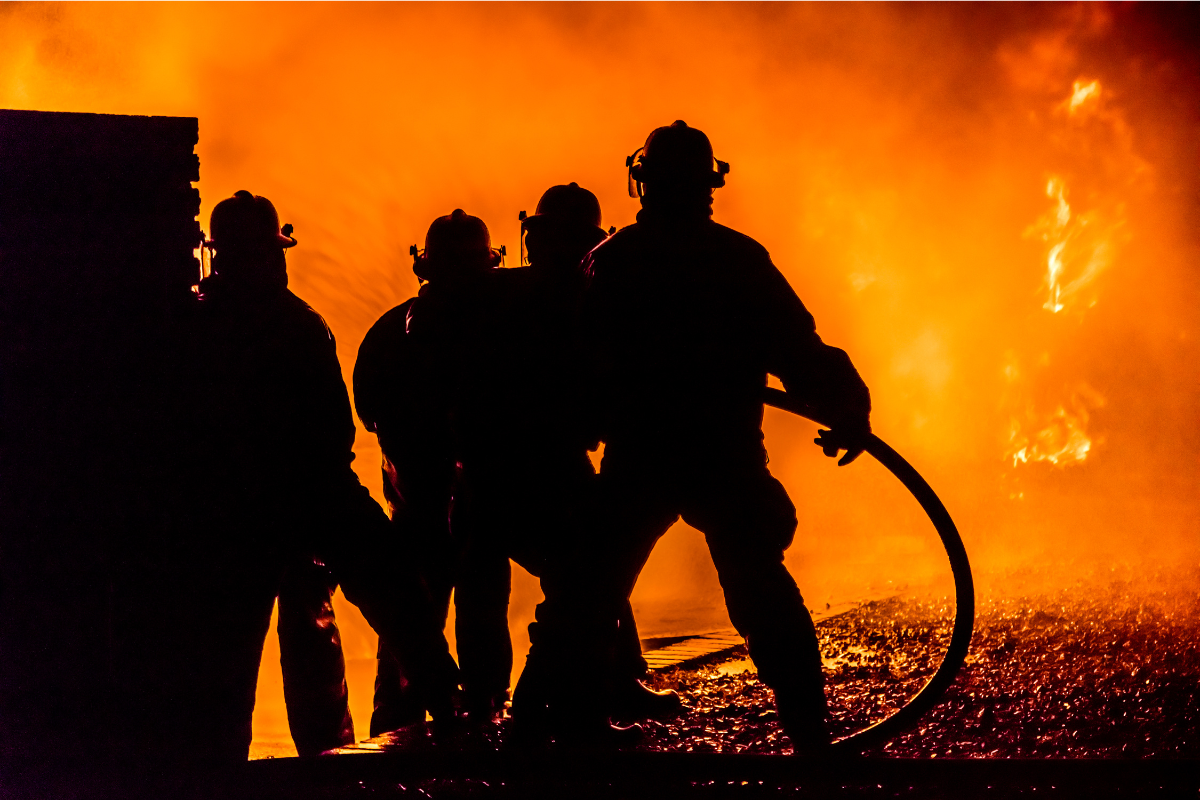
Protecting Public and Personal Health Post-Wildfire: The Role of Clean Water and Skin Defense
Table of contents
Introduction
In early January 2025, Los Angeles County faced one of the most devastating wildfire seasons in recent history. The Eaton Fire in Altadena and the Palisades Fire in Pacific Palisades and Malibu spread rapidly due to intense Santa Ana winds, consuming over 37,000 acres and leaving a trail of destruction in their wake. With more than 16,000 structures lost and at least 29 lives claimed, the wildfires forced thousands of residents to evacuate, some losing their homes entirely.
While much of the immediate disaster response has focused on air quality and fire containment, another crisis is unfolding—water contamination. Many people assume that once a fire is extinguished, the danger has passed. However, wildfire-related toxins can persist in the environment long after the smoke clears, seeping into water supplies, affecting skin health, and posing long-term risks to public health.
Clean water is essential—not just for drinking, but for protecting our skin and immune system. Our skin is often viewed through the lens of beauty and self-care, but in reality, it serves as a critical barrier against environmental toxins. In post-wildfire conditions, bathing in contaminated water can lead to increased exposure to harmful substances, affecting both skin health and overall immunity.
How Wildfires Impact Water Supply & Public Health
The Hidden Dangers in Post-Wildfire Water
When a wildfire tears through a community, it doesn’t just destroy homes—it alters the chemical composition of the environment. Ash, debris, and burned materials release a toxic mix of heavy metals, volatile organic compounds (VOCs), and PFAS chemicals that can contaminate both surface water and groundwater supplies.
Some of the biggest concerns post-wildfire include:
Heavy Metals – Lead, arsenic, and mercury from burned structures can leach into the water. These metals can accumulate in the body, leading to neurological damage and organ toxicity over time.
PFAS (Per- and Polyfluoroalkyl Substances) – Found in firefighting foam, PFAS are known as “forever chemicals” because they don’t break down easily in the environment. They have been linked to hormonal disruptions, immune system damage, and cancer risks.
Chlorine Overload – To combat contamination, municipal water treatment plants often increase chlorine levels. While chlorine disinfects water, excessive exposure dries out the skin, weakens its barrier, and may cause irritation.

Short-Term vs. Long-Term Water Contamination
The impact of wildfires on water quality can be immediate and long-lasting:
Short-term contamination happens as soon as ash, debris, and chemicals are washed into reservoirs, lakes, and groundwater. This can make tap water unsafe for drinking, bathing, and cooking.
Long-term contamination occurs when toxic substances settle into the soil and leach into groundwater supplies, affecting municipal water sources for months or even years.
Dr. Lisa Jung, ND has served as the chief resident doctor at the University of California, Irvine, where she combined pharmaceutical sciences and naturopathic medicine to provide an integrative approach to patient care.
"Exposure to wildfire-related water contamination can result in both short and long-term health effects," explains Dr. Jung. "Short-term exposure can look more like symptoms of common illnesses, such as diarrhea, nausea, headaches, rashes, or other skin irritations. Long-term exposure can contribute to cardiovascular problems, respiratory issues, metabolic disorders, reproductive issues, and even cancer."
The Skin as a First Line of Defense
Many people think of skincare as a luxury—something associated with beauty rather than healthcare. But the truth is, our skin is the body’s first line of defense against toxins.


How Wildfire-Contaminated Water Affects the Skin
"Whenever we think about the body’s method of detoxification, most people think of the liver," says Dr. Jung. "However, did you know that the skin is also a major detoxification organ? Our skin is almost like a sponge—it can absorb compounds it comes into contact with, but it can also remove them. When the skin gets exposed to wildfire-contaminated water, those chemicals get absorbed into our system, which can disrupt detoxification pathways, increasing inflammation, oxidative stress, DNA damage, and mitochondrial dysfunction. This can result in both acute illnesses and long-term chronic health effects."
Immediate Effects of Contaminated Water on Skin:
Increased inflammation and irritation, especially for those with eczema, psoriasis, or sensitive skin.
Dryness and itching due to excessive chlorine and chemical exposure.
Burning or stinging sensations in individuals with already compromised skin barriers.
Long-Term Risks:
Weakened skin barrier, making it easier for toxins to enter the body.
Increased sensitivity to allergens and environmental pollutants.
Higher risk of developing chronic skin conditions due to repeated exposure.
For elders, young children, and individuals with compromised immune systems, this risk is even greater. Without proper protection, exposure to chemically-laden water can exacerbate preexisting health conditions and weaken the body’s natural defenses.
Choosing the Right Water Filter for Post-Wildfire Recovery
Not all water filters are created equal. Many shower filters only reduce chlorine but fail to address wildfire-related toxins like PFAS and heavy metals.
What to Look for in a Shower Filter
NSF Certification – Ensures the filter has been independently tested to remove specific contaminants.
PFAS & Chlorine Reduction – Removes the chemicals most commonly found in post-wildfire water.
High Filtration Capacity – Provides long-lasting protection without frequent replacements.
The Weddell Duo Shower Filter is one of the only NSF certified filters verified to reduce Free Available Chlorine, PFAS, and particulates while maintaining strong water flow. Unlike generic filters that make unverified claims, Weddell Duo provides scientifically-backed protection, making it an essential tool for post-wildfire recovery.
Prioritizing Vulnerable Communities in Disaster Recovery
"The immune system is our defense against harmful substances," explains Dr. Jung. "For those with weakened immune systems, such as elders or immunocompromised individuals, the risk of illness from contaminated water is even higher. Their bodies cannot detoxify harmful compounds as efficiently, making it even more critical to protect them."
That’s why Watering Eden launched the #RestoreDena initiative —a community-led effort to provide clean water and air resources to wildfire-affected communities.
How Watering Eden’s #RestoreDena Initiative is Helping
In the aftermath of the 2025 LA wildfires, access to clean water and air remains a major challenge—especially for displaced elders, low-income families, and those with preexisting health conditions. While many residents rely on municipal water systems, post-wildfire contamination makes it critical to take extra precautions to protect health and well-being.
That’s why Watering Eden launched the #RestoreDena initiative, a community-driven effort to help residents of Altadena and surrounding areas recover safely. The initiative provides:
Shower filters (including Weddell Duo) to help remove PFAS, chlorine, and particulates from water.
Countertop water filtration systems for safe drinking water.
Air purifiers and protective masks to help mitigate air quality concerns.

Weddell Water has donated 30 Weddell Duo shower filters and 350 masks to support this mission—but there is more work to be done. Ensuring clean water access is a long-term effort, and everyone can play a role in making a difference.
How You Can Take Action Today
Recovery is not just about rebuilding homes—it’s about restoring health and resilience in the community. Here’s how you can contribute:
Check Local Water Reports – Stay informed about your area's water quality by reviewing local water safety reports post-disaster. If your community has experienced wildfires, monitor updates from municipal water authorities.
Use Certified Water Filtration Solutions – Ensure your shower and drinking water are filtered using NSF certified solutions that effectively remove chlorine, PFAS, and particulates.
Advocate for Public Health Initiatives – Support local policies that address post-wildfire contamination and ensure that affected communities receive necessary resources for clean water access.
Support Watering Eden’s #RestoreDena Initiative – This initiative is actively providing filtration solutions and clean air resources to wildfire-affected communities. Your donation helps expand these efforts to reach more families in need.
📢 Donate to Watering Eden today: 👉 Restore Wellness to LA’s Water and Air
LA Strong: Rebuilding in Full Health
Recovering from a wildfire isn’t just about rebuilding homes and infrastructure—it’s about restoring wellness, protecting public health, and ensuring access to clean water and air for all. While the visible destruction of a wildfire is heartbreaking, the invisible dangers of contaminated water and air can pose long-term risks to communities if not properly addressed.
Knowledge is power, and being proactive in safeguarding our health is key to building resilience in the wake of disaster. By understanding how wildfires impact water quality, prioritizing skin health as a first line of defense, and using trusted filtration solutions, we can take meaningful steps toward a safer and healthier recovery.
Join the movement. Share this post, support the cause, and take action to ensure clean water access for all. Together, we can turn this season of recovery into one of strength, resilience, and renewal—one drop of clean water at a time.
We extend our sincere thanks to Dr. Lisa Jung for her valuable contributions to this post and for sharing her expertise on post-wildfire health recovery.
We also express our deep gratitude to B. Stewart and Watering Eden for their tireless dedication to community restoration, wellness, and environmental advocacy.
References
The Guardian: Los Angeles Palisades Eaton Fires Contained https://www.theguardian.com/us-news/2025/feb/01/los-angeles-palisades-eaton-fires-contained
USGS Water Data Labs: Fire and Hydrology Visualization https://labs.waterdata.usgs.gov/visualizations/fire-hydro/index.html#/
Environmental Science & Technology Letters: Potential Health Effects of Wildfire Ash https://doi.org/10.1021/acs.estlett.4c00727
National Organization for Rare Disorders: Heavy Metal Poisoning https://rarediseases.org/rare-diseases/heavy-metal-poisoning/
Washington State Department of Ecology: Addressing PFAS in Aqueous Film-Forming Foam (AFFF) https://ecology.wa.gov/waste-toxics/reducing-toxic-chemicals/addressing-priority-toxic-chemicals/pfas/afff
Oregon Health Authority: Optimizing Filtration After Wildfire https://www.oregon.gov/oha/PH/HEALTHYENVIRONMENTS/DRINKINGWATER/OPERATIONS/TREATMENT/Documents/optimizing-filtration-after-wildfire.pdf
U.S. Environmental Protection Agency (EPA): Managing Groundwater Contamination https://www.epa.gov/sites/default/files/2015-08/documents/mgwc-gwc1.pdf
U.S. Environmental Protection Agency (EPA): Populations at Greater Risk from Wildfire Smoke Exposure https://www.epa.gov/wildfire-smoke-course/which-populations-experience-greater-risks-adverse-health-effects-resulting
Team Weddell Water
We're a passionate group of experts and self-care enthusiasts dedicated to revolutionizing the way you experience water. Based in Orange County, California, our team combines the expertise of PhD engineers, researchers, and health advocates to create innovative water filtration solutions like the Weddell Duo, ensuring cleaner, safer water for everyone.




0 comments